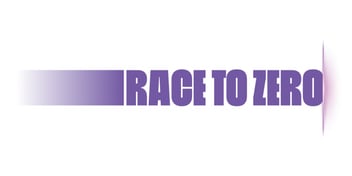Leak program attracts worldwide interest
Australian and global water utilities are learning from one another to reduce non-revenue water loss thanks to Isle Utilities’ Leakage Management Benchmark Program, which has been adopted by nearly 20 utilities worldwide.
Non-revenue water loss in Australia over a five year period was 1251 GL, or around 9% of utilities’ system input, according to the 2019 Australian Bureau of Meteorology National Performance Report.
Isle Utilities Head of Business Consulting Paul Harris said the Leakage Management Benchmark Program offers utilities clear information about how their efforts in leak reduction compare internationally.
“Traditionally, many water utilities have used rough estimates for determining how their real losses are distributed across their different asset classes,” he said.
“The program provides completely objective performance assessment using hard quantitative evidence and information, not only at a business unit level but at an industry level, and then compares these results against a range of world-class water utilities, each operating with their own non-revenue water strengths and challenges.
“The accurate and objective determination of real water loss is crucial, because if you’re a few percentage points out in your calculations, that could represent millions of dollars’ worth of infrastructure that water companies are assigning to their networks that may not be necessary.
“The process importantly justifies the need to invest in specific innovations and identified improvements and also informs utilities in their leakage management decision-making.”
International standard
The program includes a best-practice workshop, which provides utilities with networking opportunities to share knowledge and practices on a world stage, Harris said.
“The international network we have created allows program participants to have access to people around the world who have already gone through the process,” he said.
“There is an opportunity for some businesses to ‘leapfrog’ and to progress very quickly by utilising other organisations’ experiences, particularly in the technology space, providing a significant implementation advantage.”
Two of the biggest learnings for Australian utilities from their UK counterparts was in pressure management and proactive leak control.
“The big learnings for Australia are in the UK’s adoption of pressure management, which is far more sophisticated, and also their adoption of active leakage control. UK utilities are spending a lot more money on technology again than we are,” he said.
“UK utilities are monitoring and managing their assets with technology to ensure that they don't reach operating extremes, which would compromise their network reliability. They’re sweating their assets to minimise impacts on their networks and therefore maximise their life.”
Comparatively, UK utilities have been particularly interested in Australia’s efforts in customer management and mains renewal. Two Australian utilities that fared particularly well on the international stage include Hunter Water and Unitywater.
“Hunter Water have a program called Love Water. It's been very effective in engaging with the community on water conservation and also leakage management,” Harris said.
“They've enabled customers to report leaks online. They've automated that process so that the customers can engage in the leakage management process and report leaks really easily. And they've also got very proactive leakage control processes.
“When we presented Hunter Water’s Love Water campaign to the UK utilities, they loved it. There were two quite sophisticated water businesses, Severn Trent and Thames Water, that thought this proactive campaign with the community was fantastic.”
Further success
Furthermore, Unitywater has performed particularly well in terms of its mains renewal program; a key finding in the Isle Utilities Water Leakage Benchmark showed that those utilities doing a lot of water main renewals generally had low leakage, which is what Unitywater has achieved.
Unitywater Head of Asset Management Ivan Beirne said leakage is a key driver for Unitywater’s asset renewal program.
“Over the past five years we have focused heavily on water main and service replacement to reduce real losses, as well as replacing nearly 50% of our meter fleet to reduce apparent losses,” he said.
Beirne said Unitywater made a decision to use customer impact as the primary driver for prioritising its mains replacement program.
“Water main replacement never makes financial sense, if you are looking at pure financials,” he said.
“So you have to set a rule above that to say whilst we would like to have a really good financial reason to replace this asset, if the customer has been impacted a number of times then they are going to continue to be impacted, so Unitywater’s decision will be to replace the asset.”
With drought awareness in Australian communities rising, along with the price of water, and technology now enabling more effective leak reduction, Harris said many utilities are now well positioned to take conservation to the next level.
And Beirne agrees.
“Water conservation is important to our customers,” he said.
“The Millennium Drought is still fresh in people’s minds. Our customers remember the sacrifices they made to conserve water during this time and now they expect and demand a timely response to leaks.
“Our goal is to resolve all leaks quickly and effectively and we are continuing to invest in technologies that will detect leaks sooner and allow us to deal with them in a more timely manner.”
Harris said participating in the Water Leakage Management Benchmark Program requires a relatively small upfront investment, but provides the potential to create a significant return through better asset management and through reduced water loss.
“As an industry we need to be seen to be promoting water conservation and leakage reduction and improved general asset stewardship to create important increases in water utilities’ community and government image and reputation,” Harris said.
“Water utilities are also under leakage management scrutiny from their respective economic regulators. The objective data being sourced by the program is allowing for successful applications by utilities to their regulator for additional funding for leak reduction programs.”
“We are focused now on turning all of these insights into a collaborative, ongoing working group. We are running a second benchmarking program this year to bring those that presented their best practises back in 2021.”



